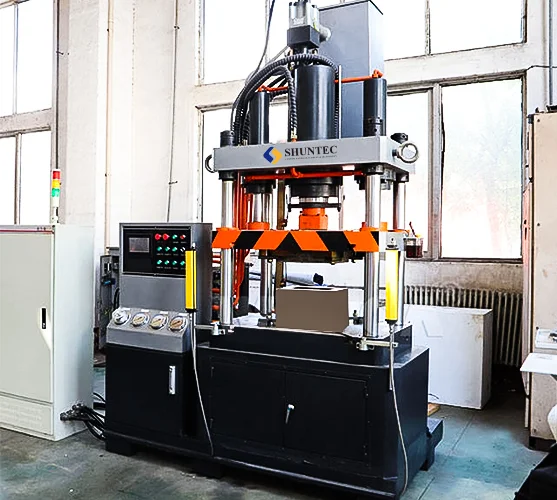Introduction
Hydraulic systems are prevalent in various industrial applications, from the construction equipment we see on highways to the steering mechanisms in our cars. These systems operate on the fundamental principle that liquid cannot be compressed, and its force can be used to do work. The medium through which this force is transmitted is typically oil. However, one might wonder: given that it is far more abundant and less costly, why don’t we use water in hydraulic systems? This article will delve into the reasons behind this choice, and explore under what circumstances, if any, water can be used as a hydraulic medium.



Understanding the Hydraulic Medium
In a hydraulic system, the hydraulic fluid (or medium) plays a crucial role. It is the ‘blood’ of the system, responsible for transmitting pressure from one point to another, thereby enabling movement. Hydraulic fluids need to have specific properties to function effectively. They should be incompressible, have good lubrication characteristics, a high boiling point, a low freezing point, and should not promote corrosion.
Commonly used hydraulic fluids are mineral oil-based, but other types include synthetic fluids, water-based fluids, and environmentally friendly fluids. The choice depends on the application’s specific requirements, with each fluid type offering its unique advantages and disadvantages.
Why Water is Not Used in Hydraulic Systems
Although water seems a readily available and cost-effective choice for a hydraulic medium, several characteristics make it less suitable for this role:
- Corrosion and Rusting: Water is a universal solvent. It can cause metals to rust and corrode over time. Most hydraulic systems are made of metal and using water as a medium would accelerate their wear and tear, leading to increased maintenance requirements and reduced lifespan of the system.
- Freezing and Boiling Points: Water freezes at 0 degrees Celsius and boils at 100 degrees Celsius at sea level. This relatively narrow temperature range is problematic for hydraulic systems that need to operate in various climates, as water could freeze or vaporize, disrupting the system’s function.
- Lack of Lubricity: One of the essential roles of a hydraulic fluid is to lubricate the system, reducing friction between moving parts. Water has poor lubrication properties compared to oil, increasing wear on the system’s components and decreasing efficiency.

Can Water be Used as a Medium in Hydraulic Systems?
Despite the challenges listed above, there are scenarios where water is used in hydraulic systems, albeit with significant modifications.
Water-based hydraulic fluids, such as water-glycol mixtures, are used in applications where fire resistance is critical. These fluids reduce the risk of fire but come with their own limitations. They can still cause corrosion, have less lubricity than oil, and need to be carefully managed to prevent microbial growth.
In specific industrial applications where the working environment is controlled, such as in some manufacturing processes, pure water can be used. However, these applications are the exception rather than the rule, given the challenges and limitations of using water.
Why is Oil Used in a Hydraulic System and Not Water?
Oil is the most common choice for a hydraulic medium due to its many beneficial properties:
- High Lubricity: Oil has excellent lubrication properties, reducing friction between moving parts in the hydraulic system, thereby reducing wear and tear and increasing the system’s lifespan.
- Stability across Temperature Changes: Oil has a wider range between its freezing and boiling points, which makes it more stable across a variety of operating temperatures. It remains functional in colder climates where water would freeze and can withstand higher temperatures without vaporizing.
- Resistance to Corrosion: Unlike water, oil does not cause corrosion or rust in metal components. This significantly reduces maintenance needs and prolongs the life of the system.
Despite its higher cost and environmental impact compared to water, oil’s superior properties make it the medium of choice in most hydraulic systems.

Do Hydraulics Use Water or Air?
While oil is typically the preferred medium in hydraulic systems due to its many beneficial properties, it’s not the only option. In some cases, hydraulic systems may use water-based fluids, as discussed above. There are also pneumatic systems, which operate on similar principles but use air or gas instead of liquid.
Pneumatic systems have their own set of advantages and disadvantages. They are generally simpler and less costly to install and maintain than hydraulic systems, but they are less precise, less powerful, and less efficient due to the compressibility of gas. Therefore, the choice between hydraulic and pneumatic systems depends on the specific requirements of the application.
Conclusion
In conclusion, while water could technically be used in certain specific hydraulic system scenarios, it is generally not the medium of choice due to its corrosive properties, narrow range of operating temperatures, and lack of lubricity. Instead, oil is widely preferred for its excellent lubrication properties, stability across temperature changes, and resistance to corrosion.
